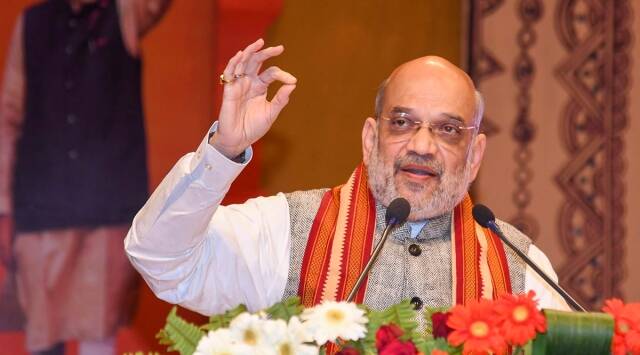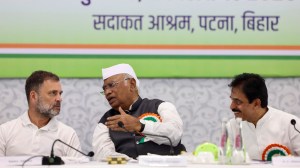Stay updated with the latest - Click here to follow us on Instagram
Farm output was low due to poor irrigation, quality of seeds: Shah
Says they started using chemical fertilisers and harmed soil in the process
 PM Modi Amit ShahUnion Home Minister Amit Shah (PTI)
PM Modi Amit ShahUnion Home Minister Amit Shah (PTI)
Agricultural production in India was low not because our forefathers didn’t know farming but for lack of irrigation facilities and good quality seeds, however, farmers resorted to chemical fertilisers and harmed our soil in the process,Union Cooperation Minister Amit Shah said Sunday.
“Western countries didn’t know farming whereas our forefathers knew agriculture well. The reason agricultural production was low here was that we didn’t have irrigation facilities and good quality seeds. However, we concluded that by applying urea, we can increase production. But in the process, we harmed the quality of our soil,” Shah said.
The Union Minister was addressing a public meeting of farmers after laying the foundation stone of the new headquarters of the Junagadh District Cooperative Bank (JDCB) and inaugurating the Farmers Training Centre on the yard of the Junagadh Agricultural Cooperative Marketing Committee (APMC) and an auction facility on the yard.
India faced food shortage in the 1960s and 1970s and the country used to import foodgrains from countries like the US. To overcome this, the government, with the help of agricultural scientists like Normal Borlaug and MS Swaminathan, and support from US-based NGOs, laid the ground for a Green Revolution in 1967-68 by promoting high-yielding and disease-resistant varieties, along with adoption of mechanisation in farming operations and use of chemical fertilisers. Foodgrain production in the country increased significantly in the late 1970s.
Today, India is among the world’s leading exporters of wheat and rice besides a number of other agricultural products. However, the country is dependent on imports of chemical fertilisers, for which the government pays huge subsidies. The Central government and state governments, including Gujarat, have started pushing for natural farming, considering the alleged adverse impacts of fertilisers on soil and human health.
“Natural farming is the only way we shall be able to save our soil in the coming days. If we continued to use DAP and urea as rampantly as we are doing now, this soil will become like cement-concrete in 25 years from now,” Shah warned farmers at the Junagadh meeting, claiming that through natural farming, “We shall be able to save ourselves from diseases like cancer.”
Natural farming is the concept of not using any kind of synthetic or inorganic chemical in farming while relying on products of cows for meeting requirements for maintaining soil fertility, crop protection chemicals etc.
The Union Minister said that the overuse of chemical fertilisers and pesticides have affected earthworms adversely, triggering a vicious cycle.
“Those farmers who use DAP and urea, tell me whether you find a single earthworm on your farm? We have eliminated all earthworms, the very organism which is a live factory of urea and DAP on our farms… Thanks to the earthworm, positive bacteria thrive in the soil of our farm and where there are such positive bacteria, pests don’t develop and therefore we won’t have to spray any kind of pesticides,” Shah said, claiming these were scientifically-proven facts.
Citing an example of his own farm, Shah sought to allay concerns about drop in production after switching to natural farming. “Production doesn’t fall by adopting natural farming practices… it goes up, earthworms return, our soil retains more moisture from rainwater and we don’t require pesticides. Not only does the production increase but we also get higher prices for our produce,” said Shah adding that in his farm, production started increasing after adopting natural farming.
Shah, who is also the Union Home Minister, said that the Central and state governments are making necessary arrangements for marketing produce cultivated through natural farming practices. The Union cabinet has approved setting up three multi-state cooperative bodies for this purpose, he said.
“Lakhs of farmers have adopted natural farming. One cow is sufficient for 21 acres of land. Gujarat government gives Rs 900 to the farmer who keeps a cow. We will have to turn to this type of farming quickly and show the world the a way within a short time period,” Shah appealed to farmers while requesting presidents of district cooperative banks to set up village-level service cooperative societies.







